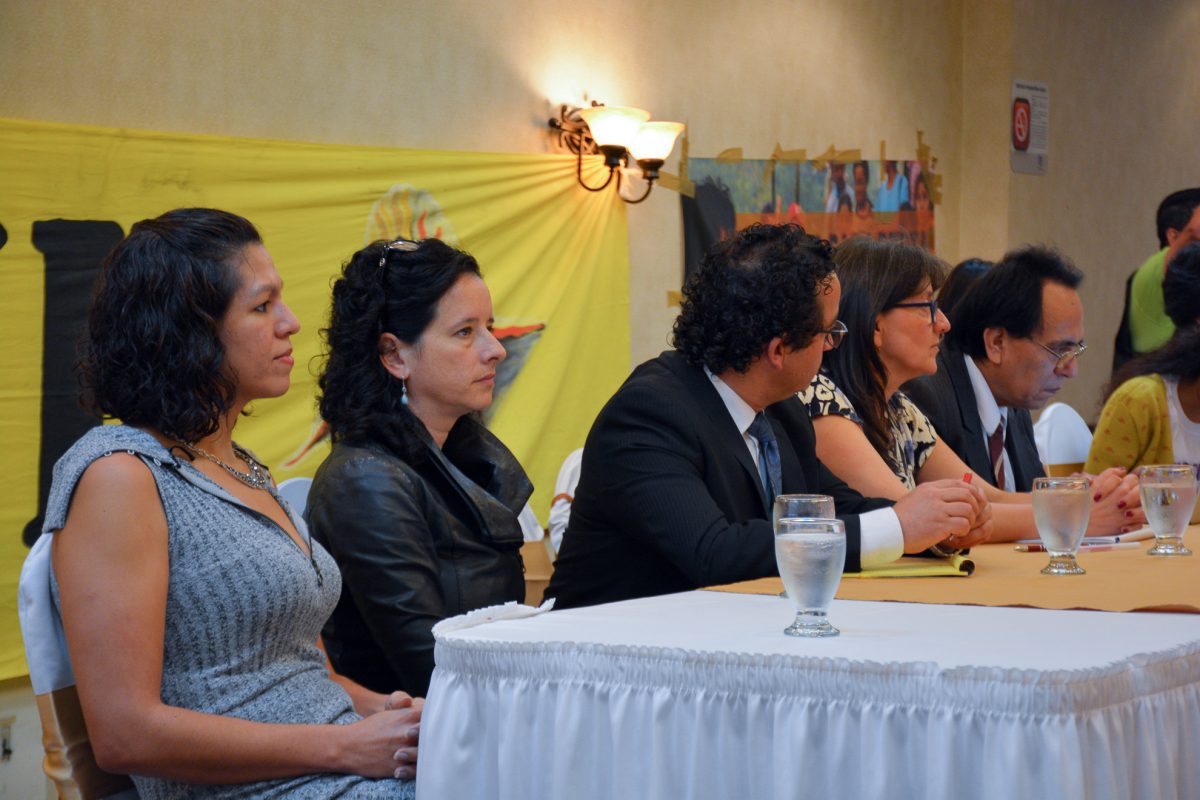






Tegucigalpa, November 1st, 2017.- On March 2nd, 2016, the murder of indigenous lenca leader and environmental activist, Berta Cáceres Flores shocked the world.
Nearly a year after her death, the International Advisory Group of Experts (or GAIPE for its initials in Spanish), published a report which highlights the irregularities made by the Public Ministry during the course of the investigation.
The GAIPE —convened by Berta Cáceres family and the Civil Council of Popular and Indigenous Organizations of Honduras (COPINH), and counts with the support of CEJIL and the Broad Movement for Dignity and Justice, among other actors—, is a response to the secrecy with which the State of Honduras reacted to her untimely death and to the government´s refusal to accept any international support or oversight during the course of the investigation.
On October 31st, GAIPE presented its results in Tegucigalpa. The report supported claims made since March 2016 by Berta’s family, COPINH and numerous other organizations about the role the DESA company played in thwarting any actions carried out by the COPINH in opposition to the Agua Zarca project.
The investigation also showed how the Honduran Public Ministry had enough evidence to identify the intellectual authorship behind Berta Cáceres’ murder, and yet didn’t take any action to bring this evidence to light. Through its results, GAIPE underscored that a diligent investigation is possible, but only when there is political will and institutional commitment.
We join the requests made by COPINH in response to the report and demand a revision of the roles assigned to those who make up the team inside the prosecutor’s office of the Technical Agency for Criminal Investigation (ATIC). We also urge that all necessary measures are taken to re-direct investigation efforts, with a new team and the necessary international oversight. The intellectual authors of the crime must be brought to justice.
Furthermore, the GAIPE report not only points to a lack of due diligence, but also indicates that Berta’s family, the members of the COPINH and all those who have accompanied the case -such as the attorneys representing them- have been exposed to harm. In this regard, we ask that all necessary protection measures be guaranteed to protect their lives and ensure that they can continue their important work as human rights defenders.
Given DESA´s proven criminal track record and the illicit activities which surrounded the project, we call for an immediate revocation of the concession granted to the company. The dam was a source of conflict in the region. GAIPE’s report proves that company officials in charge of the Agua Zarca project acted with complete impunity, destroyed the social fabric of the communities they operated in, and used their resources to corrupt numerous authorities and employ the security forces at their service.
Because of the extreme nature of the violation of their rights as victims, the COPINH and the family’s decision to form the group was necessary. GAIPE’s conclusions on Berta´s murder are an emblematic example of what happens to human rights defenders in Honduras. All of Honduran society, as well as the international community, should be outraged and worried about these events. It is inadmissible that the law allows and encourages these types of criminal practices.
CEJIL calls on national and international organizations, international protection agencies and state authorities, to join forces in a common fight to end impunity in this case and to ensure that all necessary measures are taken to dismantle the criminal networks that, in a systematic way, violate the right to defend human rights.
Download the full report in www.gaipe.net
ABOUT GAIPE
The International Advisory Group of Experts (GAIPE) was formed in November 2016, at the request of the Berta Cáceres family, supported by COPINH, the Broad Movement for Dignity and Justice (MADJ) and CEJIL, with the objective of leading a rigorous investigation with technical criteria about the context and facts linked to the murder of Berta Isabel Cáceres Flores and the attempt to assassinate Gustavo Castro Solo. The initiative also had the support of numerous national and international organizations. The evidence is part of its report, titled Dam of violence: the plan that murdered Berta Cáceres, which gathers and synthesizes the analysis of more than forty thousand pages of telephone records, as well as chats, text messages, GPS, and emails extracted from cell phones seized as part of the criminal process.
Help us continue this critical and urgent work with a donation!
DONATE NOW